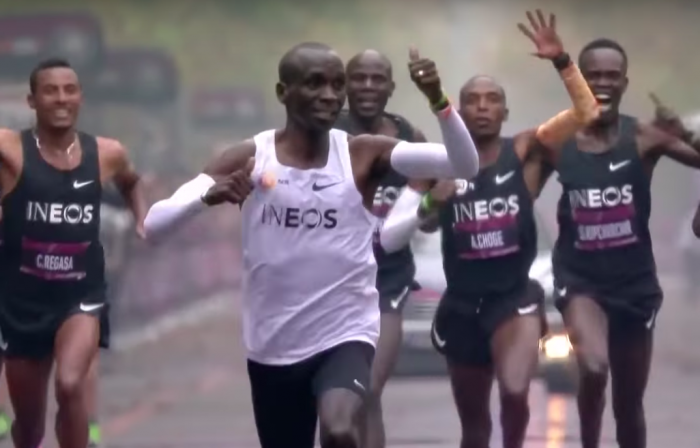Eliud Kipchoge just did something unimaginable.
He ran the first sub-two-hour marathon. 26.2 miles in 1 hour 59 mins. That’s an average pace of 4 minutes 38 seconds per mile for two hours straight. If you’ve ever tried running a mile on a treadmill, you’ll know how crazy of a pace that is.
What helps Kipchoge achieve unimaginable things? Let’s hear from the man himself:
“When you’re running with hundreds of people, and you feel that pain. Everyone is feeling the pain. But it’s actually who is tolerating that pain the best who will be more successful than others.”
Kipchoge’s view of pain can teach us something valuable about achieving greatness in our own lives.
One of the most important lessons I’ve had to learn is the difference between pain and suffering, as well as between pleasure and happiness. Most of us, at least subconsciously, feel that if we could just get rid of all the unpleasant experiences and have more pleasant experiences, then we’d be happy.
If I could just get rid of this ugly zit on my forehead.
If only I could get that annoying person to stop speaking so loudly.
If I just had a little more sex.
If only this chair were more comfortable.
We are so focused on running away from the unpleasant, and fervently chasing the pleasant, that we forget to fight for what’s meaningful in our lives. We stop working toward goals with long-term value and instead, chase short-term gratification and the removal of anything that might ruin our comfort.
As Kipchoge implies, it’s through the tolerance of pain that we can achieve greatness in life.
One of the key ideas in ancient Buddhist philosophy, and of modern neuroplasticity, is that tolerating unpleasantness is actually a skill you can train yourself in. The ability to tolerate pain is closely related to the Sanskrit word Upekkhā.
Upekkhā, or equanimity in English, is the ability to stay balanced in the midst of chaos. It’s the skill of remaining calm in the face of unpleasant experiences, and not getting yanked around by chasing after pleasant experiences. It’s a strength of mind. Resilience toward what’s difficult.
To achieve success in life, focus on cultivating equanimity. A great way to do this is to practice mindfulness meditation. Simply sit, follow your breathing, and get curious about whatever experience arises (whether pleasant or unpleasant). See if you can notice the urge to push away unpleasant experiences and grasp after pleasant ones. That’s all.
So now here’s my question for you. What’s your sub-two-hour marathon? What’s the goal you truly want to accomplish? What’s your mission on this planet?
You were meant to achieve and accomplish great things. We all have this potential within us. And chances are, it’s just the fear of facing unpleasant that is stopping you.
My advice to you: Feel the fear, do it anyway.
Tolerate the pain and work toward achieving your unimaginable dream. As Kipchoge showed us, it’s those who tolerate pain the best, and who run toward their dreams, who will be more successful than others.
~


 Share on bsky
Share on bsky





Read 0 comments and reply